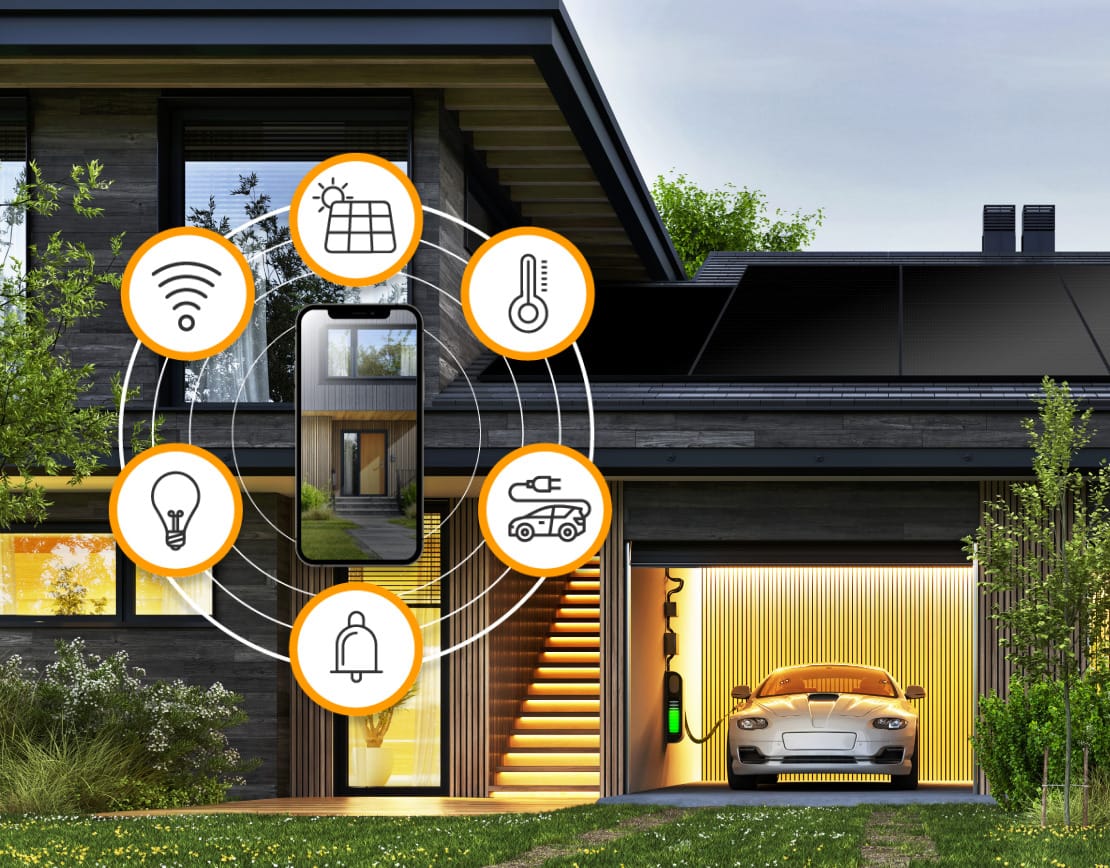When you flip a light switch, you expect the lights to come on immediately. For that to happen you must have electrical power flowing all the time—not just when the sun is shining.
Do I Need Batteries?
There are many reasons to consider investing in batteries for your solar system, including:
- Store excess energy from your solar panels instead of feeding it back to the utility grid.
- Maximize your ability to use the electricity from your solar panels on a day to day basis.
- Zero greenhouse gas emissions.
Although batteries are more expensive than a generator, they will not allow you to completely go off the grid. Most solar batteries are not designed to serve as a sole source of power. Batteries are most valuable when connected to the utility grid, and should be thought of as a solar grid storage product.
Battery Types
Lead acid cells usually have 2 volts, and need to be connected to form a battery with 12, 24 or 48 volts. When selecting cells, be sure to choose those that have been designed for deep cycle use.
Deep cycle use means that in a solar power system, the battery will most likely be charged on a sunny day, then may be almost fully discharged when used before it’s recharged.
Solar batteries only have the capacity for a few hours of electricity, and a single battery cannot run a standard American home for multiple days. However, they can provide you with temporary backup power. They can also be calibrated so that they only power the essentials in case of a blackout.
A few cautions for using lead acid batteries:
- They can contain a large amount of electrical energy, which can be discharged very quickly if any conductor is placed across their terminals.
- They contain sulphuric acid, which is corrosive.
- They give off hydrogen while charging, which is explosive when mixed with air and can be ignited with the smallest spark.
Industrial-type batteries can last as long as 20 years and with moderate care, even standard deep cycle batteries should last 3 to 5 years. Intermediate batteries should last 7 to 12 years.
Lithium batteries come in one of three formats: pouch, cylindrical and prismatic (rectangular-cubic). Prismatic are generally favored in applications that were previously powered by lead acid batteries, such as backup for off-grid telecommunication systems. Lithium batteries:
- Have an extremely long life cycle
- High discharge and recharge rates
- One-third the weight of a lead acid battery
- Take up less space
- Storage capacity drops by 8 percent at -4 degrees Fahrenheit
Nicad (nickel cadmium) batteries are alkaline storage batteries in which the positive active material is nickel oxide and the negative contains cadmium. These batteries are:
- Low discharge
- Non-freezing
- Have a long life chronologically, but not in terms of number of cycles
- Good for emergency or standby systems, but not for systems with a daily cycle
- Not recommended for most solar or backup power systems.
- Very expensive
- Expensive to dispose of due to cadmium being very hazardous
- Not very efficient (65-80 percent)
- Non-standard voltage and charging curves may make it difficult to use some equipment like standard inverters and chargers
Nife (nickel iron) batteries have an energy storage density of 55 watts per kilogram. Called the original “Edison cell”:
- Have a very long life
- Low efficiency, from 60 to 65 percent
- Very high rate of self-discharge
- High water consumption rate
- High specific weight per volume
- Highly internally resistant, meaning you can get large voltage drops across series cells
- Can reduce a solar system’s overall efficiency by as much as 25 percent
- May not be able to use them if your system depends on a stable voltage
Buy Batteries Now or Later?
For many homeowners,economics can make the decision about buying batteries for a solar system. Energy storage costs can vary both by the system’s total energy capacity ($/kilowatt-hour) and the rate at which it charges or discharges ($/kilowatt). Costs can range from $16,000 to more than $33,000 depending on system type, storage amount and inverter type.
If you choose buy batteries after your system is installed be sure to ask your solar installer to design a “storage ready” system with an inverter that works with solar batteries, so you can turn your solar system into a solar-plus-storage system.
Sources:
https://www.homepower.com/articles/solar-electricity/equipment-products/lithium-ion-batteries-grid-systems
http://www.altenergy.org/renewables/solar/DIY/solar-batteries.html
https://www.greentechmedia.com/articles/read/how-much-does-a-rooftop-solar-system-with-batteries-cost#gs.OjWiptQ



